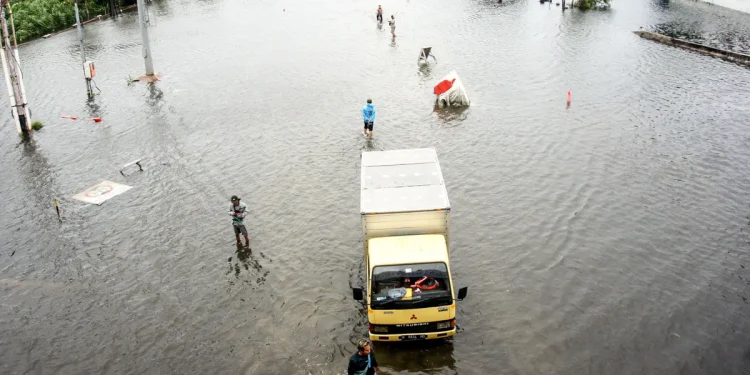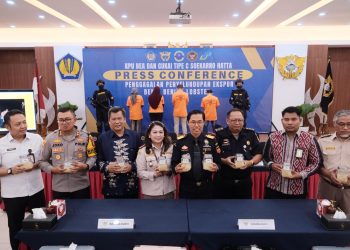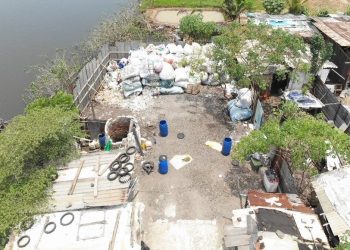Jakarta, Indonesia Sentinel — The head of Indonesia’s Meteorology, Climatology, and Geophysics Agency (BMKG), Dwikorita Karnawati, has urged citizens and local governments to prepare for extreme weather and hydrometeorological disasters as the rainy season progresses across Indonesia.
Speaking in Jakarta on Sunday, November 16, 2024, Karnawati highlighted that the La Niña phenomenon could increase rainfall by up to 20% through early 2025. This heightened precipitation poses a greater risk of flooding, landslides, and other weather-related disasters.
“Local governments and communities must enhance their readiness,” said Karnawati. “Urban areas and flood-prone regions should optimize water infrastructure, including drainage systems, retention basins, and artificial water storage, to mitigate the risk of flooding effectively.”
She also emphasized the importance of maintaining the functionality of reservoirs and other water management structures to handle heavy rains during the wet season and ensure adequate water storage for the dry season.
Early Signs of Hydrometeorological Disasters
BMKG Deputy for Meteorology, Guswanto, noted that parts of Sumatra, Kalimantan, and western to central Java are already experiencing the rainy season. Other regions, including eastern Java, are expected to follow by mid-November.
“Despite just entering the rainy season, incidents like flooding and landslides have already been reported in Bogor and Sukabumi, West Java,” said Guswanto. “We urge everyone—communities and stakeholders alike—not to let their guard down.”
Flights to Bali Disrupted due to Mount Lewotobi Eruption, Where Should Travelers Go?
Forecast of Extreme Weather
Weekly analyses by BMKG indicate the potential for moderate to heavy rainfall accompanied by lightning or strong winds in the coming week (November 7–12). These conditions are driven by dynamic atmospheric factors affecting Indonesia, which could impact daily life and disrupt aviation and maritime activities.
“Transport operators—especially in air and sea sectors—must remain vigilant,” warned Guswanto. He also advised fishermen to avoid going out to sea during adverse weather conditions.
The BMKG recommends continuous monitoring of weather updates through the InfoBMKG app to stay informed about wind conditions, wave heights, and other critical factors.
This precautionary approach aims to minimize casualties and damage during a rainy season expected to test the resilience of infrastructure and communities across Indonesia.
(Becky)


























